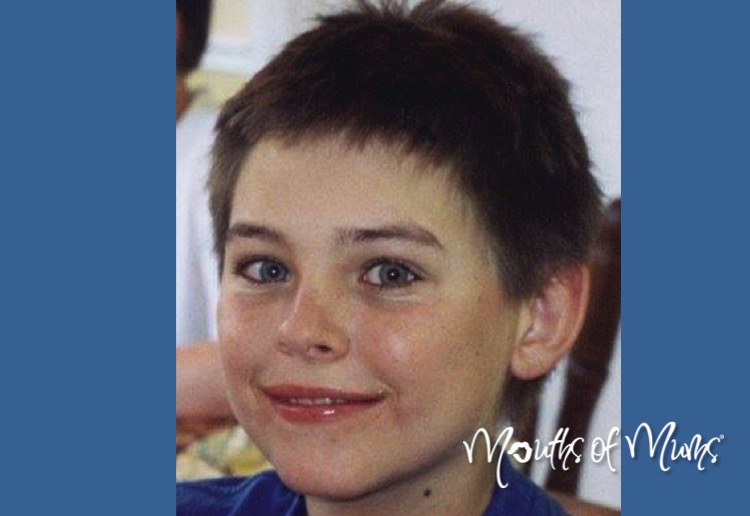Bruce and Denise Morcombe haven’t always been household names. They were once an average hard-working couple enjoying a peaceful life with their sons Dean, Bradley and Daniel in Palmwoods, a small country town on the Sunshine Coast.
In December 2003, the boys were enjoying their school holidays. Bradley and Daniel were looking forward to flying to Melbourne to visit their grandparents after their 14th birthday. On Sunday 7th December Daniel waited for a bus to take him to Sunshine Plaza for a haircut and Christmas shopping. He never returned.
The Morcombe’s relentlessly pursued answers, working collaboratively with QLD Police and the public. The Daniel Morcombe Foundation was established in 2005 to maintain public attention on Daniel’s disappearance, educate children about personal safety and keeping safe, and assisting child victims of crime.
Bruce and Denise pushed for an inquest which would revise the evidence the police had received. Their determination was rewarded and in October 2010 a coronial inquest was held. On 13 March 2014 Brett Peter Cowan was convicted and sentenced to life imprisonment for murder, indecent dealing with a child under the age of 16, and interfering with a corpse. He will be eligible for parole in August 2031.
To say the Morcombe’s are fighters would be an understatement. Though they may have won their fight for answers and a successful conviction for Daniel’s murder, their battle to protect Australian children is ongoing. They now face the challenge of seeing their bill, Daniel’s Law, come to pass in the NT. Based on Megan’s Law in the US, successful passing of the bill would make the NT the first Australian jurisdiction to legislate a publicly accessible website featuring a photo of offenders, their location, and offence details.
A draft of Daniel’s Law was read in the NT parliament on 15th September 2014. It has not been without opposition.
Some experts have voiced concern regarding the identification of victims. Bruce acknowledges this as a legitimate argument and says, “Daniel’s Law takes into account the risk of victims being identified. For instance, if the victim’s identity will be obvious due to living in a small community then the panel can decide not to publicly register the offender or include only a general location.” Daniel’s Law states that the panel must decide against publishing offender details if it will cause harm to the victim that outweighs any benefits to other victims or the public. Bruce continues by saying, “Denise and I have met a number of child sexual assault survivors. Almost all of them would have no problem with being identified. They believe that public awareness of the offender’s details would be a significant deterrent in re-offending and help prevent would-be offenders from venturing down that path. They want the public to be warned about such people.”
Another argument against Daniel’s Law is that Megan’s Law has failed to provide evidence that a public sex offender registry reduces sex offending. Asked his response to this argument Bruce says, “It’s a valid point but the factors which contribute to sex offending must be considered. Megan’s Law has been around for 20 years. Our society has changed significantly since then. More public awareness of such crimes against children has resulted in an increase of reporting incidences of sexual abuse. It’s not a statistic that one is able to quantify.” He acknowledges that most child sexual assault is committed by people who are known to the child. He says, “An example of how Daniel’s Law could assist in this situation is by informing single parents of their would-be partner’s history.” He continues by emphasising that in a modern world the goal posts have moved.
He holds grave concerns for children falling prey to online predators. “It would shock most Australian’s to learn the number of sex offenders preying upon children online. Doesn’t it make sense to use online tools to combat the issue?”
Daniel’s Law would allow the public to be aware of offenders like Brett Cowan who have a history of grievous crimes against children. In 1989, Cowan received a two-year sentence for indecent dealing. He had been doing community service at a playground when he enticed a seven-year-old boy into the toilets and molested him. On 28 September 1993, he raped a six-year-old boy and left him for dead in an abandoned car situated outside a caravan park where he and his girlfriend at that time lived. Cowan was sentenced to seven years imprisonment and was granted parole after four-and-a-half years. He relocated to the Sunshine Coast with his Aunt and Uncle, who were Pastors at the Woombye Christian Outreach Centre, as it was then known. He married in 1999, had a son, and settled in Beerwah. He would go on to father another 3 children to 2 more women. On 7 December 2003, Daniel was seen waiting for a bus under the Kiel Mountain Road overpass. The bus he was supposed to catch had broken down just down the road. Daniel hailed the replacement bus but it continued due to being behind schedule and it being an unofficial stop. Cowan stood a distance behind Daniel and by the time the second bus came a few minutes later, both he and Daniel had gone.
Asked whether a public sex offender registry would have changed the way he and Denise raised their boys Bruce says, “Yes, it would have been a very useful tool had it have been available. Palmwoods was, and still is a small, safe community. It wasn’t until after Daniel’s disappearance that we became aware of an evil underbelly that exists everywhere. As responsible parents we would have educated our children about potential personal safety issues. Identifying serious sex offenders on a website to children makes it real. We don’t wish to scare anyone, especially children, but it will help them appreciate that they need to observe those basic safety messages. For instance, travelling with a friend if possible or telling someone where you are going and what time you will be home. And as always Recognise, React and Report anything suspicious.”
The passing of Daniel’s Law has the potential to change would-be outcomes for children who may be preyed upon by such deprived, opportunistic individuals.
Being a community issue, if you wish to have your say then please visit the Daniel Morcombe Foundation website where an online survey has been created. All responses will be forwarded to the NT parliament before the second reading of Daniel’s Law in the coming months.
We are interested in your opinion: Is a Public Accessible Sex Offenders website a good thing for Australia?
Please use the link here and vote YES or NO and help by sharing.
Image courtesy of Facebook





















4:59 pm
3:46 pm
6:04 pm
-

-
-
zara replied
- 29 Apr 2016 , 3:15 pm
Reply8:03 pm
-

-
-
zara replied
- 29 Apr 2016 , 3:15 pm
Reply3:52 pm
-

-
-
zara replied
- 21 Apr 2016 , 8:29 pm
Reply3:19 pm
-

-
-
zara replied
- 21 Apr 2016 , 8:31 pm
Reply10:37 am
-

-
-
zara replied
- 05 Apr 2016 , 12:57 pm
Reply3:05 am
-

-
-
zara replied
- 03 Apr 2016 , 11:04 am
Reply9:52 pm
-

-
-
zara replied
- 03 Apr 2016 , 11:07 am
Reply9:52 pm
-

-
-
zara replied
- 03 Apr 2016 , 11:11 am
Reply8:25 pm
-

-
-
zara replied
- 03 Apr 2016 , 11:12 am
Reply5:44 am
-

-
-
zara replied
- 28 Mar 2016 , 12:13 pm
Reply8:04 pm
-

-
-
zara replied
- 26 Mar 2016 , 10:01 pm
Reply12:51 pm
-

-
-
zara replied
- 03 Apr 2016 , 11:13 am
Reply- 1
- 2
- »
Post a commentTo post a review/comment please join us or login so we can allocate your points.